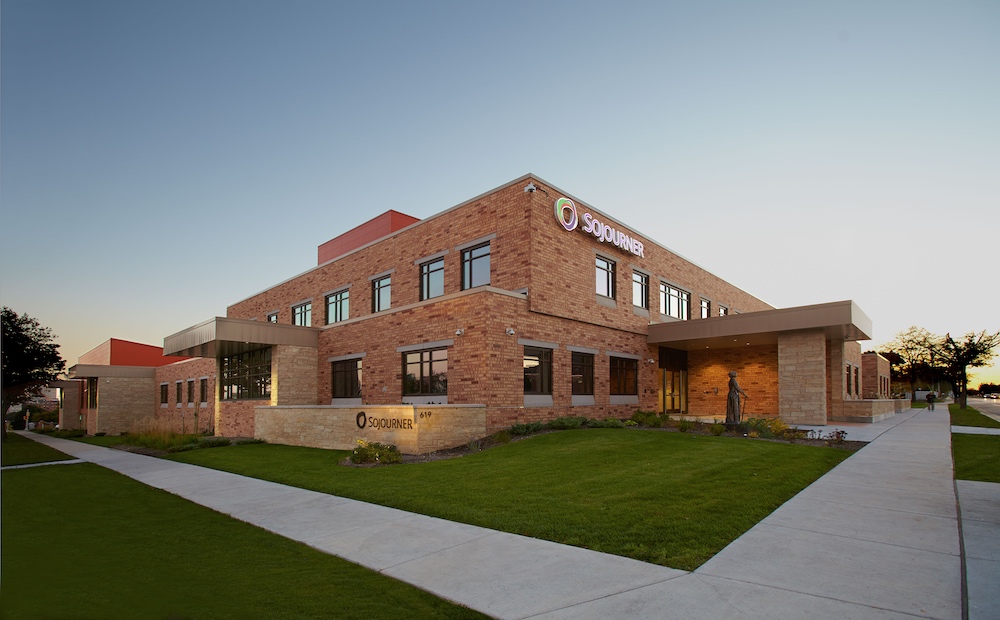Amid Domestic Violence Awareness Month, two Wisconsin organizations sought to track the economic impact of the growing problem in the Greater Milwaukee region, where domestic violence homicide rates have increased by nearly 400% from 2018 to 2020.
Tracking domestic violence
A joint report released this week by the Sojourner Family Peace Center and The Jamie Kimble Foundation for Courage highlights the hidden costs and economic losses resulting from injury and loss of life from intimate partner violence. Among the findings, the study found costs totaling more than $113.1 million annually in Milwaukee County alone, or roughly $6,976 per each reported incident.
Those costs don’t account for how intimate partner violence, as well as control, impacts victims and “their ability to live safe, peaceful, and fully actualized lives,” the report said.
The researchers evaluated the costs of domestic violence by reviewing 11 categories including the loss of life, physical health care, mental health care, policing costs, civil court costs and lost work productivity. When combined to assess the cost to the state, the number totaled more than $657 million, with most of the losses stemming from loss of life and loss of worker productivity, and healthcare costs.
For example, the estimated annual cost for physical healthcare following an abusive incident is more than $8.5 million in Milwaukee County. It’s one of the reasons Sojourner is urgently calling for action.
The human impact
At least 36% of Wisconsin women will experience domestic violence during their lifetime and incidences of abuse affect more than 94,299 victims in the state, annually — a likely underestimate considering the number of underreported cases in the state, per the report.
Why discuss the economic impact of these incidences?
“In the beginning, when we were dreaming about co-located services for families impacted by domestic violence, we understood that we also needed to connect our work to other issues in the community including education, public safety, and the economy,” said Carmen Pitre, president and chief executive of Sojourner. “We wanted to initiate conversations about family violence and it’s connectivity to other indicators of health in Milwaukee with the hopes that it would spur increased investments in this area.”

The Sojourner Family Peace Center is working to break the stigma around domestic violence. The organization connects survivors to resources and raises public awareness of the issue.
“People at the core think that [domestic violence] doesn’t affect them, it doesn’t affect their friends, that it’s isolated only to certain communities,” Cherie Paust Swenson, who serves as the organization’s VP and chief development officer, told Technical.ly. “And that often looks like any other group that doesn’t look like them. But one in four women experiences domestic violence in their lifetime. There really are no boundaries. People think it’s not in their neighborhood, but chances are, it is.”
Connecting survivors to services
The impacts of domestic violence are intricately woven, Paust Swenson said. Learning to identify signs of domestic violence, for example, can be difficult for people to do. It can be as overt as physical harm, or as subtle as emotional abuse and financial control, and can be complicated by legal matters such as marriage and child custody.

To open the doors to help, Sojourner provides 24/7 crisis response services, system advocacy, and healing services for survivors who are ready to take the next steps in their life. This can include help in navigating the legal system for restraining orders, custody changes, or other matters; earning one’s GED; participating in job readiness programs and seeking out mental health services.
All of the services are designed to ensure safety, independence, and self-worth for survivors and their children: “We don’t prescribe what survivors need — we try to meet them where they are,” Paust Swenson said.
Pointing to the increase in homicides of women over the past few years, the VP said, failing to identify abuse or sweeping incidences under the rug can have dire consequences. While abuse happens in every corner of the community, cultural sensitivities — such as a lack of trust in law enforcement in the Black community — may make some survivors hesitate before getting help.
The average woman takes more than seven attempts to leave an abusive relationship, for example.
“Homicide is often the first time we’re learning someone is in an abusive relationship,” Paust Swenson said, pointing to the rates as one of the factors behind the commissioned report. “How do we get upstream? How do we stop that from happening? We knew the numbers would be shocking, but it’s important to open the doors to conversation. We want people to know: it’s not your fault, you’re not alone, and that we are there for you. You’re not stuck.”
_
Sojourner Family Peace Center operates a 24/7 domestic violence hotline. If you or a loved one is in need of help, call (414) 933-2722.
Subscribe to This Week in Milwaukee Rising:







